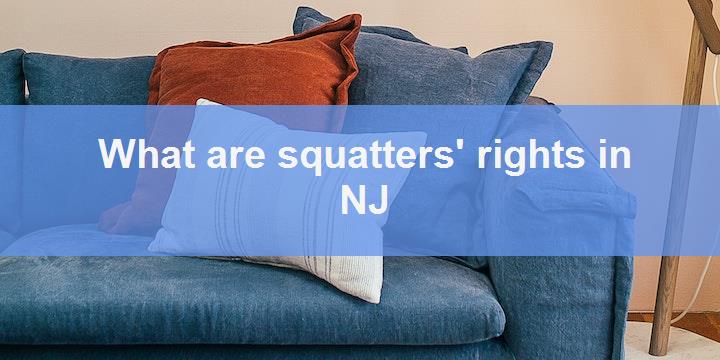What are squatters’ rights in California?
First of all, it is important to understand what squatters’ rights are. Basically, squatters are individuals who live in and use a property without the owner’s permission. In California, squatters’ rights are protected under adverse possession laws. This means that if a squatter lives in a property for a certain period of time (usually five years), they may be able to claim legal ownership of the property. However, it is important to note that this process is not automatic and can be disputed by the actual owner of the property. Additionally, squatters must meet certain requirements in order to claim adverse possession, such as openly and continuously occupying the property for the entire five-year period. Overall, understanding the legal framework behind squatters’ rights in California is crucial for both property owners and squatters alike.
What is the squatting/squatter?
First of all, squatting refers to the act of occupying an abandoned or unused property or land without permission from the owner. This can happen for various reasons, such as homelessness or a lack of affordable housing options. Squatters are individuals who choose to take over these spaces to make them their homes. For instance, a person might move into an empty house and start living there without the landlord’s consent. Squatting is often seen as an alternative to traditional housing options, and although it can be controversial, it serves as a way for those in need to have a roof over their heads. An example of a squatter might be someone who has lost their job and can no longer afford to pay rent, so they move into an abandoned building to survive.
What is Adverse posession in California?
Adverse possession in California is a legal concept that allows someone to claim ownership of a property without acquiring it through purchase. Essentially, adverse possession occurs when someone continuously and openly uses a piece of property for a specified amount of time, usually 5 years in California. This concept can be difficult to understand because it challenges the traditional notion of property ownership. Furthermore, adverse possession can only be claimed under specific circumstances, such as when the previous owner abandons the property or fails to pay property taxes. Despite its complexities, adverse possession is a fascinating topic that demonstrates the intricacies of property law.
Is it legal to squat in California?
The question of whether squatting is legal in California is a contentious one. Firstly, it is important to note that squatting is not explicitly illegal in California, but it is also not explicitly legal. Additionally, there are different kinds of squatting, each with their own legal implications.
For example, squatting in a vacant property is a civil offense, while breaking into someone’s home and squatting there is a criminal offense. It is important to understand these nuances before deciding to squat in California, as the consequences can be severe. Ultimately, it is recommended to consult with legal professionals before engaging in any kind of squatting activity in California.
Can police remove squatters in California?
Yes, police can remove squatters in California. However, the process can be complicated and time-consuming. Firstly, the property owner must first give the squatters a notice to vacate. If the squatters do not leave, the owner must then obtain an unlawful detainer order from the court. Once the order is obtained, a sheriff or police officer can legally remove the squatters from the property. It is important to note, however, that the squatters may still have legal rights and may try to challenge the eviction in court. Therefore, it is advisable to seek legal counsel before taking any action.
How to evict squatter in California?
Firstly, it’s important to understand that squatters have certain legal rights in California. However, if you own the property, there are steps you can take to evict them. The first step is to serve the squatter with a legal notice to vacate the property. Once the notice is served, you must wait a certain amount of time before filing an unlawful detainer lawsuit. Additionally, you may need to provide evidence that you own the property and that the squatter is actually living there. It’s also important to note that you cannot use force to remove the squatter. Overall, evicting a squatter in California can be a complex process, so it’s important to consult with a lawyer to ensure that you follow all of the necessary legal steps.
FAQ
Q: What are squatters’ rights in California?
A: Squatters’ rights, also known as adverse possession, are a set of legal principles that allow occupants to claim ownership of a property under certain circumstances, even if they do not have a legal right to be there.
Q: How long do you have to live on a property to claim squatters’ rights in California?
A: In California, the statute of limitations for adverse possession is five years.
Q: Can anyone claim squatters’ rights in California?
A: No, only those who meet certain criteria can claim squatters’ rights. For example, the occupant must have lived on the property continuously, openly, and notoriously for the duration of the statute of limitations.
Q: What type of properties can squatters claim rights to?
A: Squatters’ rights can apply to any type of property, including residential, commercial, and vacant land.
Q: Can property owners prevent squatters from claiming rights to their property?
A: Yes, property owners can take various steps to protect their rights, such as posting signs or filing lawsuits against squatters.
Q: What happens if a squatter successfully claims rights to a property?
A: If a squatter succeeds in claiming adverse possession, they can legally take ownership of the property, subject to state and local laws regarding real estate titles and transfers.
Q: What should I do if I suspect someone is squatting on my property?
A: If you suspect someone is squatting on your property, you should contact a real estate attorney or law enforcement to explore your legal options.
Also Reading
North Carolina average utility bill
What is the average rent in Wilmington?
Best time to buy real estate in Utah




